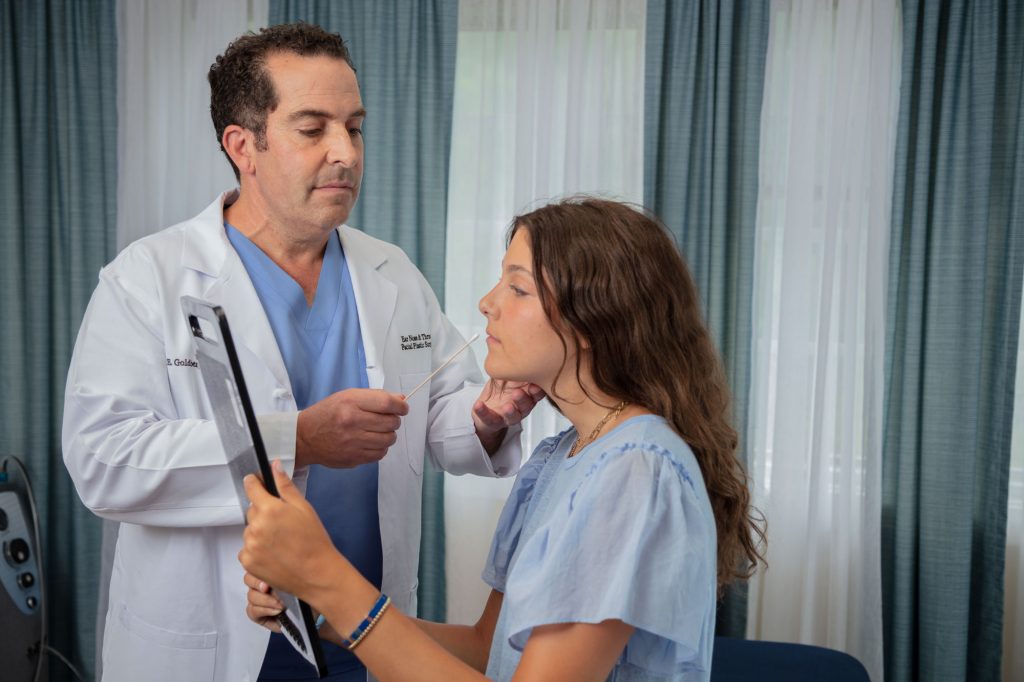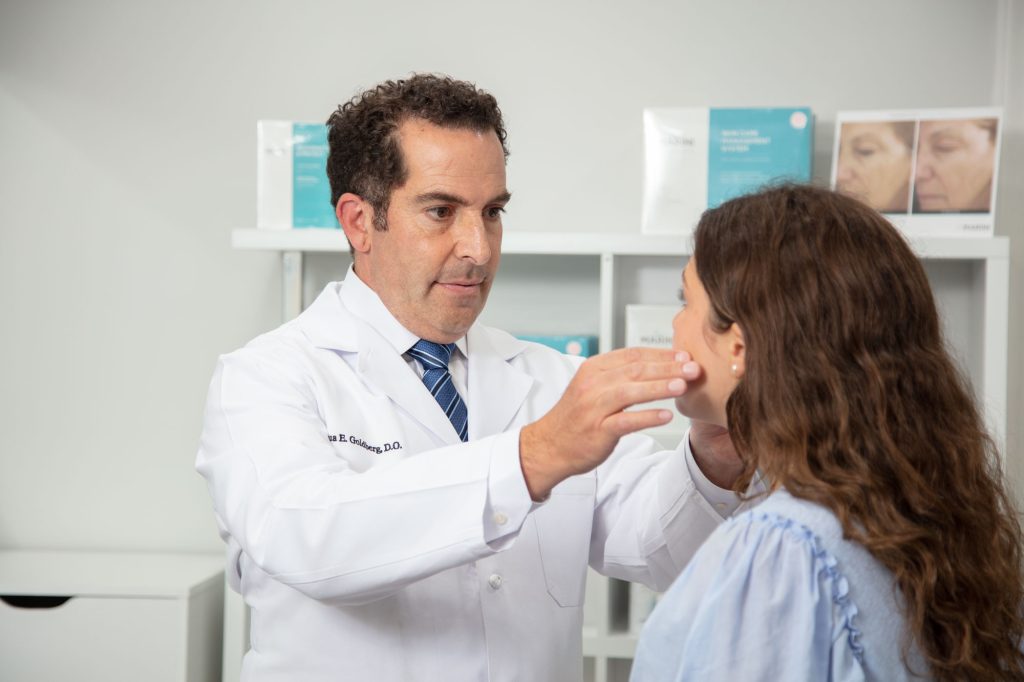- (215) 659-8805
- 723 Fitzwatertown Road Willow Grove, PA 19090
See Dr. Goldberg’s profile on Healthgrades.
Dr. Joshua Goldberg is a board-certified Facial Plastic Surgeon specializing in Rhinoplasty, Facelift, Eyelid Surgery, and all facial cosmetic surgical procedures.
Dr. Goldberg grew up in the Philadelphia suburbs of Montgomery County. He graduated from Pennsylvania State University Eberly College of Science before beginning his medical education at the esteemed Philadelphia College of Osteopathic Medicine.
Dr. Goldberg completed his Facial Plastic Surgery residency at the renowned consortium of Hospitals of Philadelphia College Osteopathic Medicine (Medical College of Pennsylvania, St. Christopher’s Hospital for Children, Albert Einstein Medical Center, Deborah Heart & Lung Center, and Cooper Hospital Trauma Center).


As a preeminent facial plastic surgeon and rhinoplasty specialist, Dr. Goldberg is recognized as a leader in surgical rhinoplasty..
Patients travel from across Pennsylvania, New Jersey, and Delaware to seek Dr. Goldberg’s unsurpassed surgical precision and artistry in creating naturally beautiful results that will last a lifetime.
In addition, Dr. Goldberg also specializes in achieving exceptional results with various non-surgical procedures, including facial injectables such as Botox, Dysport, Juvederm, Restylane, and Kybella.
With a focus on plastic and reconstructive surgery, he continues to share his expertise by authoring articles for various academic journals. Dr. Goldberg is an assistant professor of Otorhinolaryngology at Philadelphia College of Osteopathic Medicine. He is a Pennsylvania State University Eberly College of Science Premedical physician mentor.
Dr Goldberg Facial Plastic Surgery – Powered by mediaEXPLOSIONinc.com
Copyright © 2023. All rights reserved.